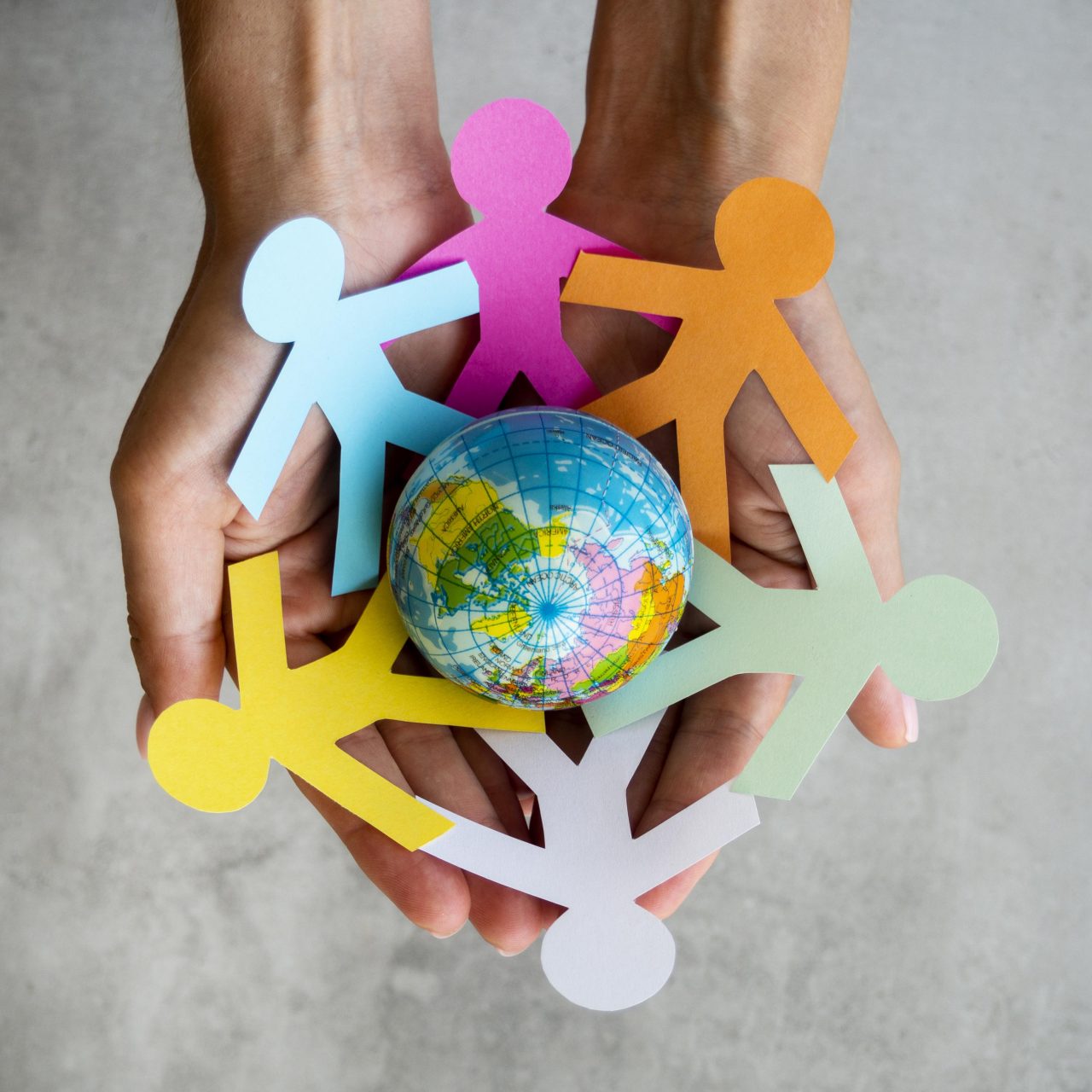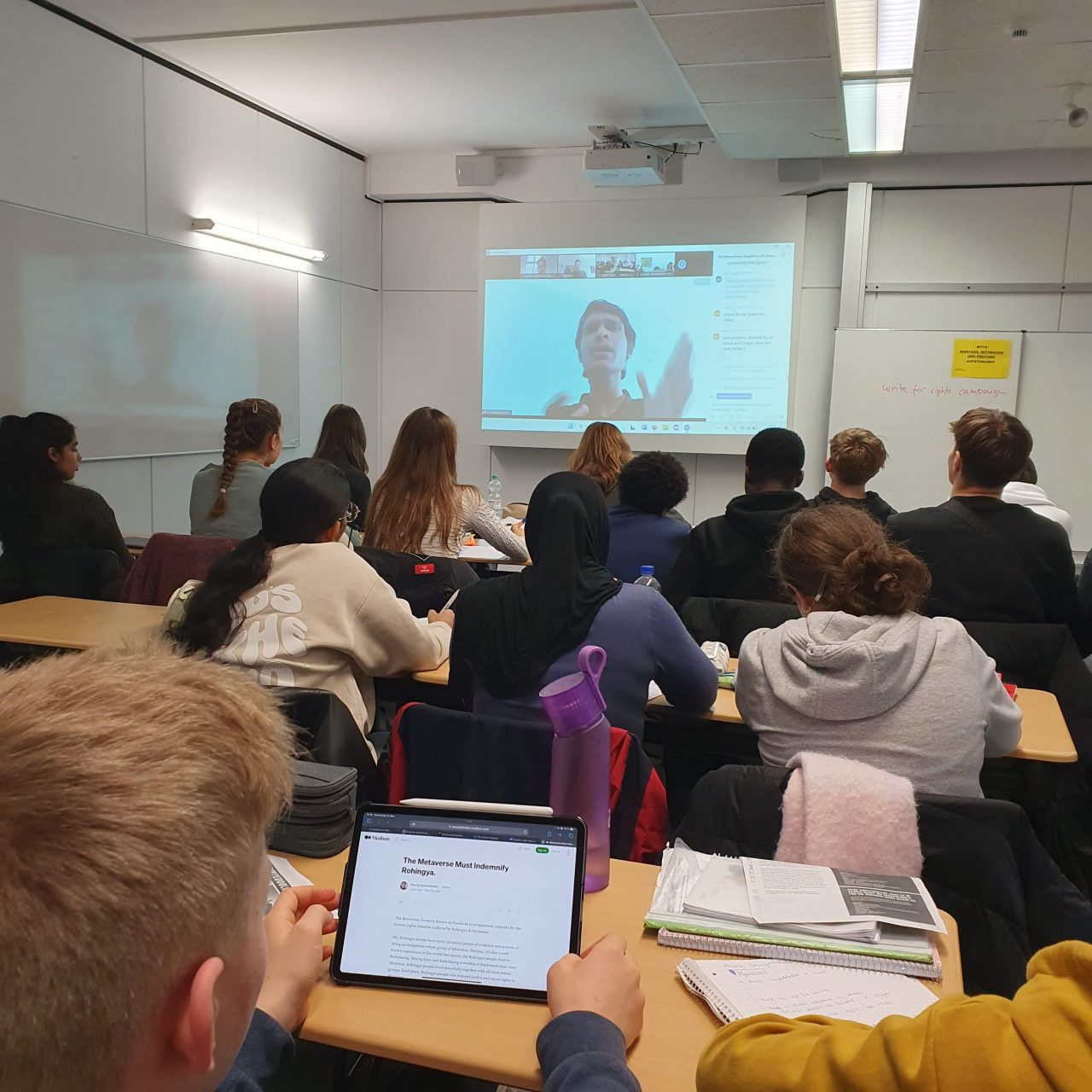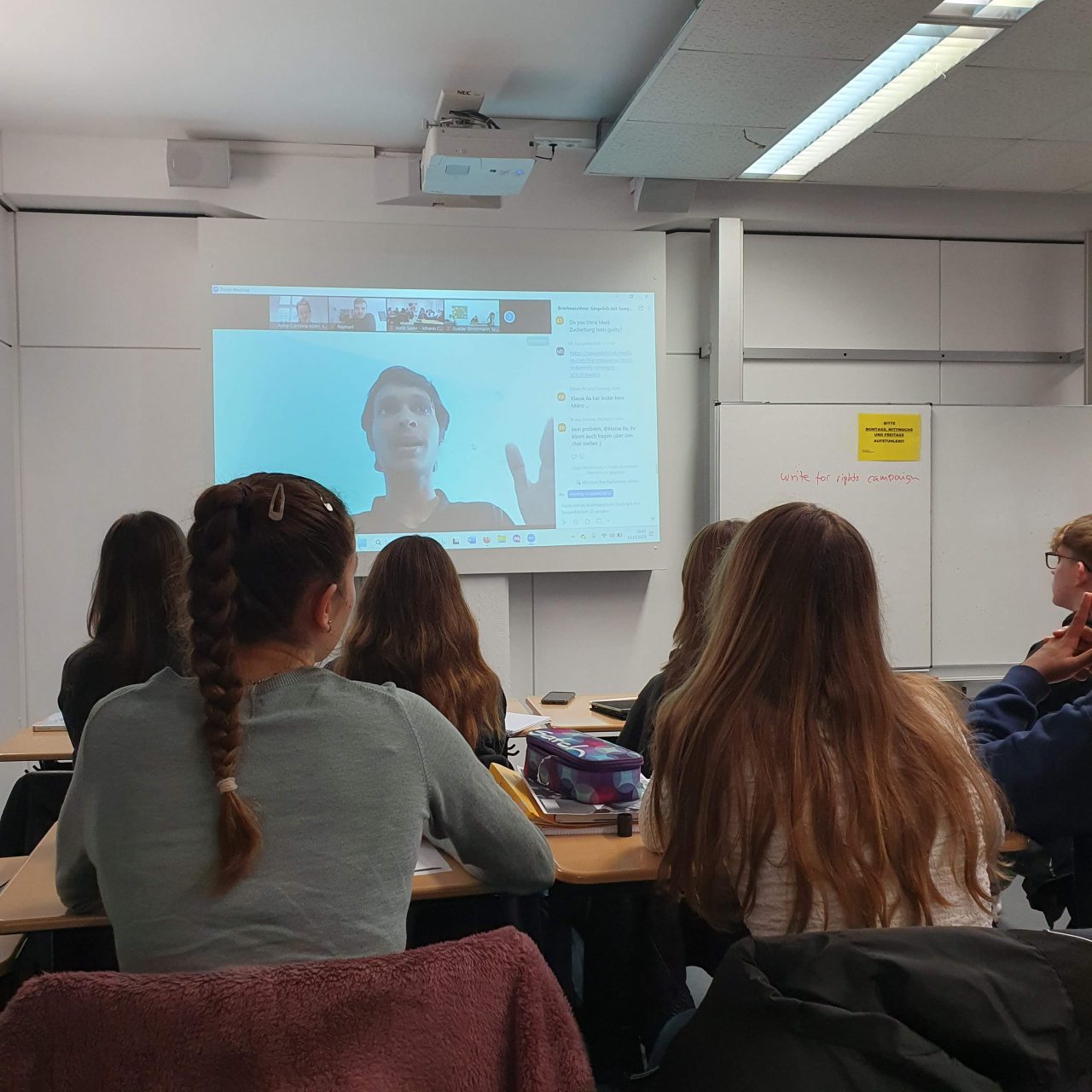Taking on Meta – The struggles of the Rohingya people
A video conference with a man named Maung Sawyeddollah took place at our school, the Neues Leibniz Gymnasium, and many other schools nationwide on December 14, 2023 to talk about what is happening in Myanmar and what the Rohingya people are going through. It was organized by Amnesty International for the Human Rights Week 2023. The class 10c and their teacher Mrs Leiß were lucky to attend.
Who is Maung Sawyeddollah?
Sawyeddollah is a 22-year-old refugee and activist from the Rohingya people from Myanmar who now lives in the largest refugee camp in Bangladesh. He fled Myanmar in 2017 at the age of 16. He spoke of wanting to become a doctor and later changing his goal to becoming a lawyer, which was harder than usual due to the restrictions imposed on this minority group. Because of this, he didn’t have the same chance to properly pursue his dreams as others. Meanwhile he’s studying to become a lawyer, he is also fighting for his people’s human rights and demands justice. Maung also explained how hard life was in Myanmar and in the refugee camp. At the end of the video conference, everyone was welcome to ask any questions they still had.
What is happening to the Rohingya people?
The Rohingya are a predominantly Islamic ethnic group living in Myanmar that have been discriminated against for years. Prior to the 2017 Rohingya genocide where more than 740,000 people were forced to flee to Bangladesh, 1.4 million Rohingya lived in Myanmar. Since 2016 many villages have been destroyed, burned and an ethnic cleansing of the Rohingya as well as religious and ethnic persecution has taken place. The military violently expelled the Rohingya people, because of their extremist ideas that they are illegal immigrants from Bangladesh continually dehumanizing them to justify the genocide along with denying them citizenship making them stateless. Many of the Rohingya that remained in Myanmar have been displaced internally as well. Thousands of them have been killed, tortured and raped since 2016. These radical ideas to exterminate this group, general discrimination and dehumanization have spread like wildfire through Facebook/Meta by their algorithms that proactively boosted hate and anti-Rohingya content. This is the reason why Sawyeddollah sues Meta for not stopping the hate speech on their platform.
Life in the refugee camps
The people living in these camps live in inhumane conditions. Basic needs are not met and they are not allowed to move around freely. They only receive $8 a day for three meals and there are restrictions on education. They have to educate each other while the teenagers would teach the younger children. This lack of education also leads to crimes occurring among the people because they lack the knowledge to know better. Some people find it difficult to distinguish right from wrong, which is something many extremists use against them to misinform people. In this way, they dehumanize the Rohingya people in order to justify the crimes committed against them. This tactic has been used in many conflicts, genocides and crimes against minorities around the world.
What are Maung and Amnesty International doing?
Sawyeddollah has sent letters to the human rights director of Meta to hold them accountable for their complicity in these crimes by using their money to help the Rohinya. He asked them to establish and fund an education program. However, these letters have been rejected both times as they claimed to not engage in helping the people. Although there are many obstacles to overcome so the Rohingya can live a dignified life, Maung still does his best to help and advocate.
Amnesty International has also supported the journey of restoring the life the Rohingya deserve. On their website they are informing the people with the knowledge they have acquired through research, publishing multiple reports and updates on the situation. They also give information about activists like Maung Sawyeddollah to send them letters to show them solidarity and give them hope as well as the information of Mark Zuckerberg, CEO of Facebook, to demand for compensation payments.
Measures we can take
The knowledge that small powers can create big powers is so important for advocating for human rights. Even the most powerful country, company etc. cannot beat people uniting around the world. People can sign petitions, protest, share on social media, inform their friends and family, boycott products if needed and so much more. These things have a greater impact than most people think, which is why it’s so important that everyone participates in these ways to help. To summarize, the more people contribute to fixing these types of problems around the world, the easier it gets.
Why is it important?
This conversation was crucial to understanding the depth of the situation. Most students know nothing about the Rohingya people and their suffering, which is why speaking to someone like Sawyedollah is very helpful. This is even more true because of his own experience as a witness with a valid statement about what is truly going on there, who is involved, who are the victims and who are the perpetrators. In conclusion, the main points of this conference was to raise awareness and deepen the understanding and empathy among the students.
References: conference with Maung Sawyeddollah, website of Amnesty International ; Written by: Rania Tobail



